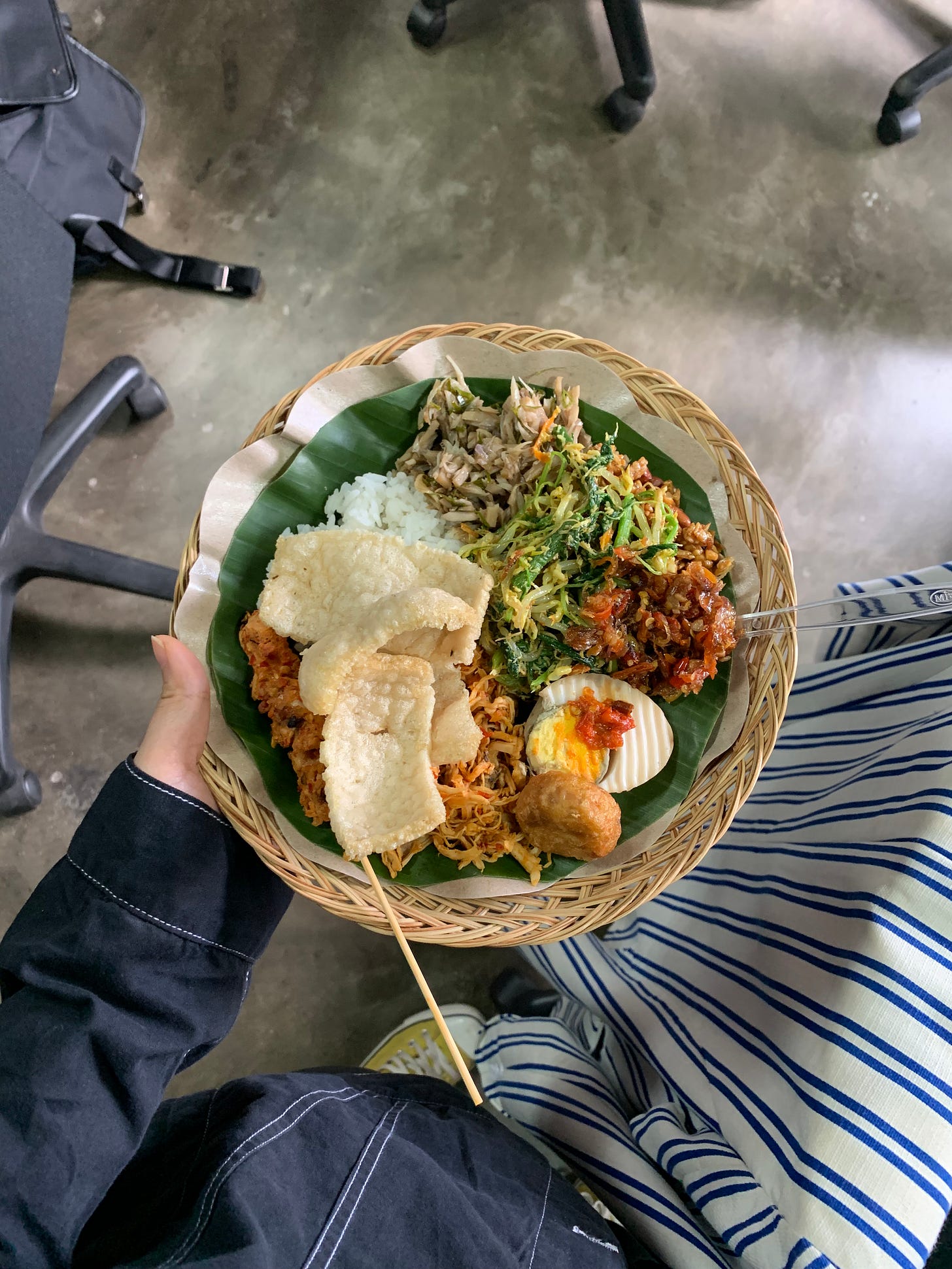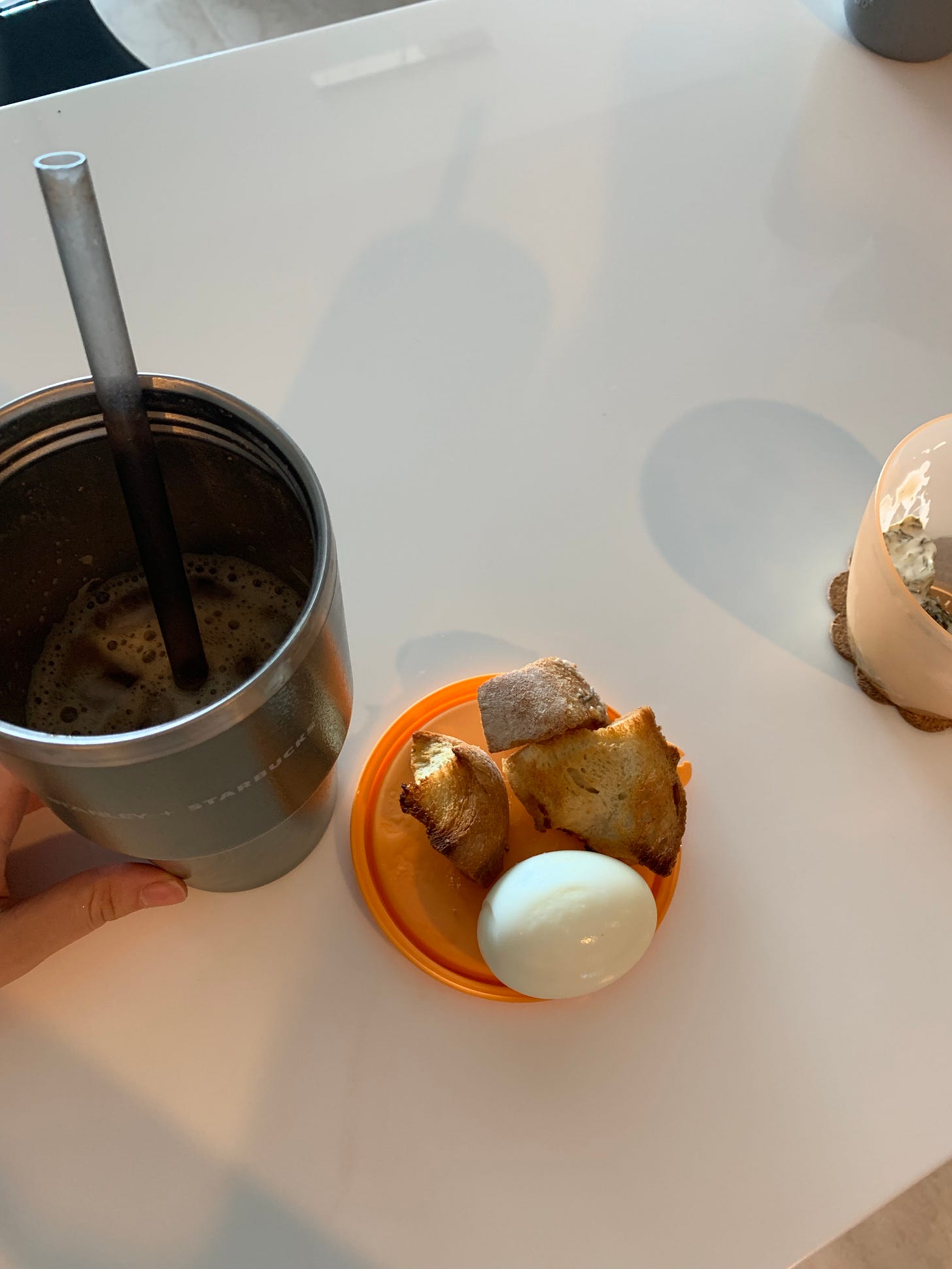How are you all doing this week? I am following strict protocols after flying back from Bali, doing my PCR swab test and self-isolation. What about you? Are you still feeling the holiday blues? My post last week talked about the end of my 2018, following strict food rules and exercise routine, even when I was on a holiday. I was so scared of weight gain and was doing everything I could to keep the weight off.

At the start of 2019, I really still wanted to lose weight. I wanted to go back to my “old” body but it was so difficult. I couldn’t think of any other ways except to eat lesser and move more. I kept thinking to myself why I was still unable to shed the kilos that I put on between 2017 to 2018. I started looking at different ways on how to lose a little more weight.
This led me to the discovery of intermittent fasting (IF). At this point in time, I was already exercising to my maximum abilities and eating lesser than 1200 calories per day. I was hopeful that intermittent fasting would help me to trim some of those calories off. I decided that I would no longer eat breakfast.

In less than 3 weeks, I saw results from the reduction in calories and crazy enough, I was even more determined to cut more calories! I did it because I could get instant result. IF claims to provide a lot of advantages. Many people are SUPPORTERS of IF. Just because they work on another person, does not mean it is good for you.

It worked for me during 2019 because I was so desperate to lose weight. IF can be problematic when you have body image issues or prior disordered eating behaviors. A lot of people tend to lose weight from doing intermittent fasting because of the drastic amount of calories that they cut out from their daily diet. If you’re cutting 300-400 calories per day, that alone is a minimum of 2,1000 calories in a week. However, your changes slow down over time, and when that happens what would you do? Would you only eat 200 calories a day?

The problem with reducing your calories when you’re already eating so little is your body continue to be deprived of fuel. Your body needs fuel to function. You need energy to breathe, you need energy for your heart to beat. When you’re not feeding it enough food, the body ends up compromising on your health. For example, if you cut yourself, your wound takes longer to heal. Another example is when you start missing your periods because your body simply does not have enough energy to menstruate. When that happens, your hormonal system as a woman is disrupted.

IF is also more likely to promote binge-eating behaviors. If you can only eat between a specific time frame, and you have strong cravings to eat, you’re more likely to binge. It is that simple. The more you restrict, the higher chance it is to binge.
IF continued to encourage my problematic behaviors with food and exercise. I was always constantly trying to find faster ways to lose weight. I felt like a failure for not being able to avoid “binges”. I was miserable.
My lack of nutrition or health knowledge caused me more problems down the road. Real and sustainable changes take time and effort. If only I had properly educated myself on nutrition and fitness, I’d never have jumped on the bandwagon of IF. Instead, I’ll teach myself how to eat more nutritious meals and equipped myself with the knowledge of resting.
Have anyone of you tried IF? If so, are you an advocate of it? Do you believe that it’s the best “diet” or “lifestyle”? I would love to hear your thoughts on it.
If you like this post, please share it with your friends!
Next week, I will talk about how I met my nutrition coach who eventually helped me out of this hole I dug for myself. See you!




